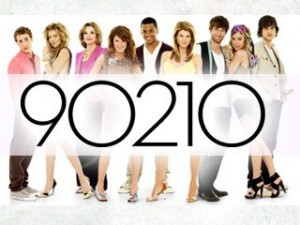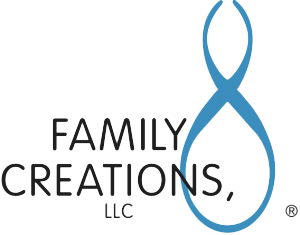
The REAL World of Egg Donation – By Stephanie Goldman-Levich
A couple of weeks ago, in a show that many would call a “guilty pleasure” a storyline about egg donation was introduced. First, I will blame the love that I have for this show on being a child of the 80’s. I think it would be very hard to find many young women my age who don’t know the names Brandon Walsh and Dylan McKay. If these names do not conjure up memories of the Peach Pit or West Beverly High School, then I should fill you in that this guilty pleasure I refer to is the classic – Beverly Hills 90210. Two years ago, a new version of 90210 was created which is the show I have been (until now) secretly watching since its inception.
Before I explain my issues with the past two episodes, let me start by saying that I am a fan of the show. I enjoy watching the weekly drama unfold and while some of the storylines are predictable, the acting is actually quite good and it’s enough to keep me tuning in week after week. With that said…
Last week, I was very excited to see a new storyline introduced about egg donation. For those of you who don’t watch the show, a main character named Annie (played by Shenae Grimes) was approached by her boss asking Annie to donate her eggs to her and her husband who cannot conceive otherwise. Well, actually she asked to “buy her eggs” which according to a Federal Law called The National Organ Transplant Act – is illegal. This was my first issue with the show. But, I thought – this will be corrected. The character shouldn’t know the laws surrounding egg donation, so surely the writers will correct this later on. (I’ll spare you the anticipation and tell you that the writers made no attempts to correct this and proceeded to use the words “selling my eggs” and “buying her eggs” throughout the entire storyline.) Moving on… Annie’s boss proceeds to explain that she is prepared to pay Annie $20,000. My second issue.
In the REAL world of egg donation, egg donors are compensated for their time and inconvenience. Not for their eggs. And the American Society for Reproductive Medicine (ASRM) has guidelines regarding donor compensation which clearly states that compensation in excess of $10,000 to egg donors is never appropriate. So the idea that Annie would “sell her eggs” for $20,000 would for one be illegal, and secondly, (in regards to the compensation) would be highly unethical.
Through the next couple of episodes we learn that Annie (because of her family’s financial troubles) has accepted the $20,000 offer and her boss would transfer her compensation to her bank account that week – which would be the week she was starting injections for the cycle. Annie was then handed a brown paper bag with syringes in it, by her boss! They reviewed some simple instructions and Annie was told that she could come to her boss if she needed help with the injections. No doctor’s appointments. No instructions from a medical facility. Nothing.
In the REAL world of egg donation, donors are screened long before they are given injections to start a cycle. That screening will include psychological evaluations, physical examinations, infectious disease screening, genetic testing, drug testing, and more. Only after a potential donor passes these panels of tests is she approved to begin a donation cycle. And before a clinic will even think about asking a donor to start injections for a cycle, they will make sure that the recipient and the egg donor have entered into a legal agreement with each other. And when the clinic is ready to have the donor start her medication, the injections are given to the donor by the physician’s office or mailed to the donor by a pharmacy, which ensures the integrity of the medication.
Annie goes on to tell her mother about her plans to “sell her eggs”, (after Annie tried to hide it from her, but was caught.) Annie’s mother prohibited her from following through with the process even after Annie explained how the compensation would financially help the family. Later in the episode, another character gives birth, and Annie and her mother are at the hospital and holding the newborn. While looking at the beautiful newborn baby, Annie realizes the implications of being a donor. She and her mother have a bonding moment where they together decided that it is not the right decision. And that’s how it was left.
In the REAL world of egg donation, the donor would have been psychologically screened, and these implications would have been addressed long before the donor actually started the donation cycle.
Now, it is possible that the writers will keep the storyline alive and follow the recipients through their search for a new donor. I only hope this is the case if the writers will be more responsible and accurately portray egg donation for what it is. I am the director of an international egg donor program that facilitates mostly anonymous egg donation cycles. While Annie’s donation would have been considered a “known” or “directed” donation and therefore procedures would be slightly different, the items I have addressed were still grossly misrepresented.
But, alas – I will admit that when the next episode airs on October 25th at 8:00pm standard time, I will be tuning in. Partly to watch the drama unfold. Will Ivy and Dixson get back together? Will Silver and Naomi tell the truth about Mr. Canon? And partly, to see if the writers will redeem themselves and more accurately portray what the REAL world of egg donation looks like.
Stephanie Goldman-Levich is a Co-Founder of Family Creations, LLC. (www.familycreations.net) She and her business partner Julia Alkire-McConnell founded Family Creations in 2006. Stephanie and Julia have been named two of America’s Top Entrepreneurs Under the age of 30 by Inc. Magazine and have been featured in various publications including Valley Life, and ForbesWoman.
